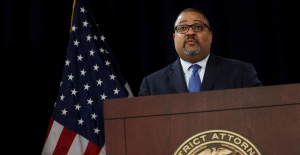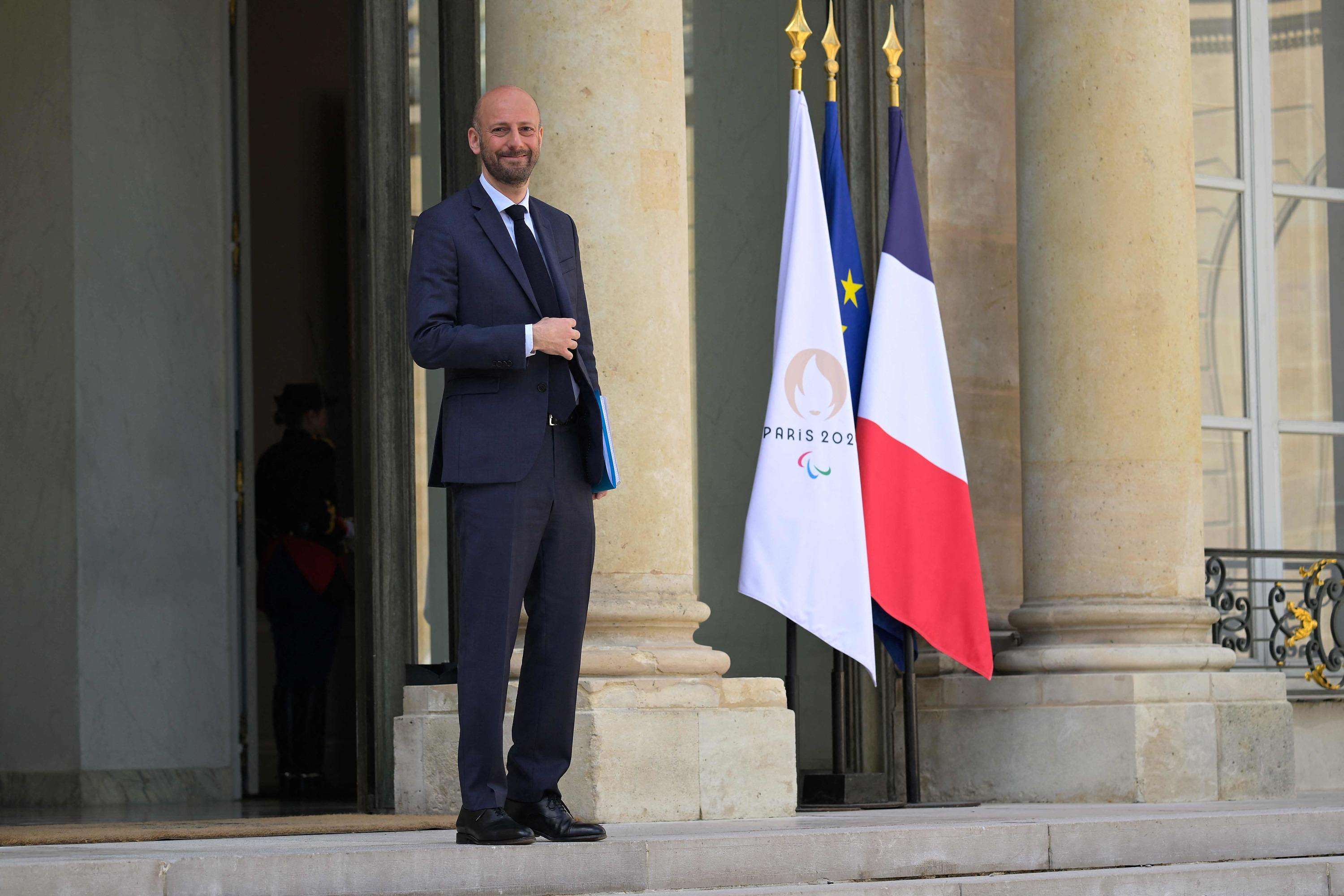The fear of a large-scale cyber attack leads the ranking of executive concerns, ahead of a global economic recession, a rebound in the pandemic or other health crisis, the inflationary environment, supply chain problems or a new conflict geopolitical, according to the Digital Trust Survey 2023 report, prepared by PwC based on the opinion of 3,522 senior managers from 65 countries, including more than a hundred executives from Spanish companies.
The concern is logical if one takes into account that 42% of the managers surveyed assure that effective attacks on their systems have increased considerably since 2020. In Spain, 38% recognize incidents with a cost of between 100,000 and one million dollars in the last three years and only 18% say they have not had an incident in this period.
Given this scenario, the majority of those interviewed - 65% globally and 56% of Spanish executives - expect to increase their cybersecurity budgets in 2023. "70% understand that their cybersecurity position has improved, and this is largely due to the increases in the budget and the collaboration of the management as a whole", says Jesús Romero, partner in charge of Business Security Solutions at PwC.
Despite this increase in cyberattacks in the last two years, only 40% believe that they have fully protected their most critical areas. In Spain, the risks that have received the most attention are those associated with remote work and customer digitization processes, ahead of those related to cloud environments.
"Much remains to be done. Only 3% of the CISOs interviewed acknowledge having optimized the five NIST capabilities: identify, protect, detect, respond and recover," says Romero.
The managers also comment on which attacks they believe will increase significantly in the coming year. The ranking is led by attacks against employees' emails (33%), followed by ransomware (32%) and those directed at the interfaces used to manage cloud services (31%).
For their part, Spanish managers expect, above all, an increase in hacking and data theft (40%), followed by ransomware (41%).
Faced with these challenges, Romero emphasizes the importance of "continuing to increase investment in security and awareness, and advancing in the involvement of the CEO and senior management, which must be aligned with the CISO. It is a transcendental issue," he says.
"There is no doubt that investment has increased due to a greater awareness in the organization of cyber risks and their consequences," agrees Esther Mateo, general director of Security, Procedures and Corporate Systems of Adif. The board explains that it reports to Adif's board of directors and that cybersecurity is a priority on its agenda.
For his part, Sergio Fidalgo, group chief security officer of BBVA, highlights the great exposure that the financial sector has, which is facing "an asymmetric struggle because the core business of criminal organizations is to harm us and we can only dedicate a part of our resources to protect ourselves," he says. In addition, he mentions the high regulation and digital maturity as noteworthy elements when analyzing cybersecurity in this sector. "At BBVA we have a concept of embedded security, it is implicit in our platform," he points out.
Fidalgo underlines the "high awareness" at BBVA. "The board of directors has a cybertechnology and cybersecurity committee where the president and four directors are, and where I, as CIO, report monthly. The level of knowledge, awareness and risk management is very high," he says.
Esther Mateo explains that her cybersecurity priorities are IT/OT convergence and the digitization of the supply chain. In addition, she mentions the importance of promoting a cybersecurity culture project to "raise awareness among employees and third parties, so that we have a better shield." And she adds: "There is a greater possibility of containment by improving the culture of cybersecurity and strengthening the supply chain because no matter how much effort we make, it will not be enough if the chain is not robust."
Sergio Fidalgo explains that his strategy is "to accompany the bank's digital transformation, increase collaboration at all levels and continue to raise awareness among employees, customers and society, because people are the weakest link and we must turn them into the strongest shield ".
Both agree that one of the biggest challenges is the recruitment and retention of qualified professionals. "It's one of the dramas of the cybersecurity industry," says Fidalgo. Mateo adds that Adif deals with the added problem of not being able to compete in salaries in a context of rising salaries.
"Initiatives such as the establishment of global strategic risk management programs, the deployment of effective resilience schemes and the joint work of senior management must be addressed", concludes Jesús Romero.

 B:SM will break its investment record this year with 62 million euros
B:SM will break its investment record this year with 62 million euros War in Ukraine: when kyiv attacks Russia with inflatable balloons loaded with explosives
War in Ukraine: when kyiv attacks Russia with inflatable balloons loaded with explosives United States: divided on the question of presidential immunity, the Supreme Court offers respite to Trump
United States: divided on the question of presidential immunity, the Supreme Court offers respite to Trump Maurizio Molinari: “the Scurati affair, a European injury”
Maurizio Molinari: “the Scurati affair, a European injury” Beware of the three main sources of poisoning in children
Beware of the three main sources of poisoning in children First three cases of “native” cholera confirmed in Mayotte
First three cases of “native” cholera confirmed in Mayotte Meningitis: compulsory vaccination for babies will be extended in 2025
Meningitis: compulsory vaccination for babies will be extended in 2025 Spain is the country in the European Union with the most overqualified workers for their jobs
Spain is the country in the European Union with the most overqualified workers for their jobs In the United States, a Boeing 767 loses its emergency slide shortly after takeoff
In the United States, a Boeing 767 loses its emergency slide shortly after takeoff The A13 motorway will not reopen on May 1
The A13 motorway will not reopen on May 1 More than 1,500 items for less than 1 euro: the Dutch discounter Action opens a third store in Paris
More than 1,500 items for less than 1 euro: the Dutch discounter Action opens a third store in Paris 100 million euros in loans, water storage, Ecophyto plan… New measures from the executive towards farmers
100 million euros in loans, water storage, Ecophyto plan… New measures from the executive towards farmers New York justice returns 30 works of art looted from Cambodia and Indonesia
New York justice returns 30 works of art looted from Cambodia and Indonesia Les Galons de la BD dedicates War Photographers, a virtuoso album on the Spanish War
Les Galons de la BD dedicates War Photographers, a virtuoso album on the Spanish War Theater: Kevin, or the example of an academic failure
Theater: Kevin, or the example of an academic failure The eye of the INA: Jean Carmet, the thirst for life of a great actor
The eye of the INA: Jean Carmet, the thirst for life of a great actor Skoda Kodiaq 2024: a 'beast' plug-in hybrid SUV
Skoda Kodiaq 2024: a 'beast' plug-in hybrid SUV Tesla launches a new Model Y with 600 km of autonomy at a "more accessible price"
Tesla launches a new Model Y with 600 km of autonomy at a "more accessible price" The 10 best-selling cars in March 2024 in Spain: sales fall due to Easter
The 10 best-selling cars in March 2024 in Spain: sales fall due to Easter A private jet company buys more than 100 flying cars
A private jet company buys more than 100 flying cars This is how housing prices have changed in Spain in the last decade
This is how housing prices have changed in Spain in the last decade The home mortgage firm drops 10% in January and interest soars to 3.46%
The home mortgage firm drops 10% in January and interest soars to 3.46% The jewel of the Rocío de Nagüeles urbanization: a dream villa in Marbella
The jewel of the Rocío de Nagüeles urbanization: a dream villa in Marbella Rental prices grow by 7.3% in February: where does it go up and where does it go down?
Rental prices grow by 7.3% in February: where does it go up and where does it go down? Even on a mission for NATO, the Charles-de-Gaulle remains under French control, Lecornu responds to Mélenchon
Even on a mission for NATO, the Charles-de-Gaulle remains under French control, Lecornu responds to Mélenchon “Deadly Europe”, “economic decline”, immigration… What to remember from Emmanuel Macron’s speech at the Sorbonne
“Deadly Europe”, “economic decline”, immigration… What to remember from Emmanuel Macron’s speech at the Sorbonne Sale of Biogaran: The Republicans write to Emmanuel Macron
Sale of Biogaran: The Republicans write to Emmanuel Macron Europeans: “All those who claim that we don’t need Europe are liars”, criticizes Bayrou
Europeans: “All those who claim that we don’t need Europe are liars”, criticizes Bayrou These French cities that will boycott the World Cup in Qatar
These French cities that will boycott the World Cup in Qatar Toulouse-Racing 92: The liberating entry of Antoine Dupont, the Ile-de-France shipwreck... The tops and the flops
Toulouse-Racing 92: The liberating entry of Antoine Dupont, the Ile-de-France shipwreck... The tops and the flops Premier League: Sheffield United relegated after heavy defeat against Newcastle
Premier League: Sheffield United relegated after heavy defeat against Newcastle Judo: Audrey Tcheuméo consoles herself with a 5th European coronation
Judo: Audrey Tcheuméo consoles herself with a 5th European coronation Tennis: in Madrid, Rafael Nadal wins his revenge against Alex De Minaur
Tennis: in Madrid, Rafael Nadal wins his revenge against Alex De Minaur


















